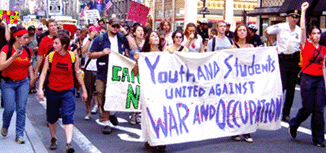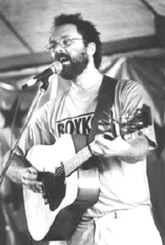
Creating Momentum: Youth and the Anti-War Movement, Part II
While many of their peers are being recruited to serve in Iraq and Afghanistan, high school and college students across the country are engaging in a grassroots effort to stop militarization and recruitment in their schools. The growing number of counter-recruitment efforts and the large turnout among young people at the September 24th anti-war march in Washington DC are evidence that youth are providing essential momentum to the anti-war movement. Before surveying the growing counter-recruitment movement and its potential, it is helpful to recognize where student anti-war activists find their inspiration to get involved in these issues. This is particularly important when considering the challenges of isolation, apathy and consumerism facing young people today.



